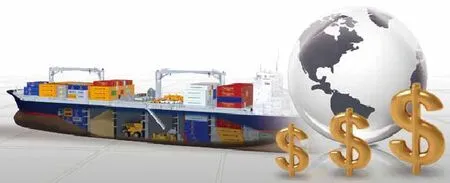What should shipping industry do under reverse globalization
2017-05-18ReporterXuMiaomiao
Reporter Xu Miaomiao
What should shipping industry do under reverse globalization
Reporter Xu Miaomiao

With Brexit, the US President Trump announcing withdrawal from TPP immediately after taking office and the rise and fall of French general election, the reverse globalization is becoming an inevitable trend in 2016, which will surely run counter to the shipping industry for which globalization is the essence. What should the shipping industry do under such circumstances?
Major powers can be the prime driver of globalization, likewise, they can be the driver of reverse globalization. At present, reverse globalization is mainly caused by the continuous shrinking driving force of the Unite States and other major western countries. It is the indication of dissatisfaction with benefit distribution during the process of globalization and the increasingly weakened governance capability of the Unite States. From the age of Empires, the age of America to the age of rivals competing with each other, does the globalization and also the latter two go further and further away from today’s world? No matter what the answers could be, it is an undeniable fact that the reverse globalization is forcing its way out, spreading from Europe and the Unite States that are the great benef i ciaries to the entire world.
Brexit and the core of Trump administration all predict the arrival of reverse globalization. How thereverse globalization will affect international trade and international shipping industry?
Xu Jianhua, professor of Shanghai Maritime University pointed out that the fi rst effect of reverse globalization on shipping industry is declining demand. Zhang Yongfeng, Chairman of the shipping department of Shanghai International Shipping Center indicated that the effect may be demonstrated in three aspects: firstly, effect on development of seaborne trade between major powers. Reverse globalization initiated by some major powers will exert effects on staple commodities and container trade; secondly, effect on instability of shipping market. Shipping industry has its own features and patterns in time of smooth development, both bulk cargo and container have their own characteristics. Once reverse globalization develops, there will be some changes in policies; thirdly, different economic entities will have disagreements on development tendency of international maritime laws, regulations and rules.
Reverse globalization will have negative effects on shipping industry, which was affirmed by most of insiders. However, how significant for these effects? It is reported that many insiders believe that the effects turn out to be not as significant as we imagine. Ning Tao, chairman of shipping department of Shanghai International Shipping Center indicates that Trump has just taken office, it is normal that there will be big difference between campaign promise and reality, and it is still early to see whether reverse globalization can become a trend. Xu Kai, chairman of big data and policy research department of Shanghai Shipping Center points out that great tuning point in shipping industry is mainly related to the change of transportation modes, rather than economy, international trade and globalization. Policies of Trump administration will directly have effects on trade frictions rather than total international trade volume. It thus appears that the effect of reverse globalization driven by the US will not be as signif i cant as we imagine.
Some developed nations with Europe and the Unite States as the leading force are trying to change global game rules which will affect globalization in short term. How will the shipping industry overcome difficulties and forge ahead against the wave of reverse globalization is the concern of the insiders.
At present, reverse globalization is still developing, however many insiders of insight believe globalization is inevitable which brings more benefits to the human community than drawbacks. Any dissatisfaction and reverse action are temporary. It is necessary to promote competitiveness of shipping industry. In addition to this, experts present measures to deal with the developing reverse globalization. Professor Xu Jianhua points out that transport capacity should be adjusted and integrated to reduce carriers and internal friction caused by competition.
Zhang Yongfeng indicates that the great development of shipping industry of China cannot be separated from the reform and opening-up policy. China should enhance multilateral cooperation. With promotion of the Belt and Road policy, more and more projects will defuse the negative effects of reverse globalization.
